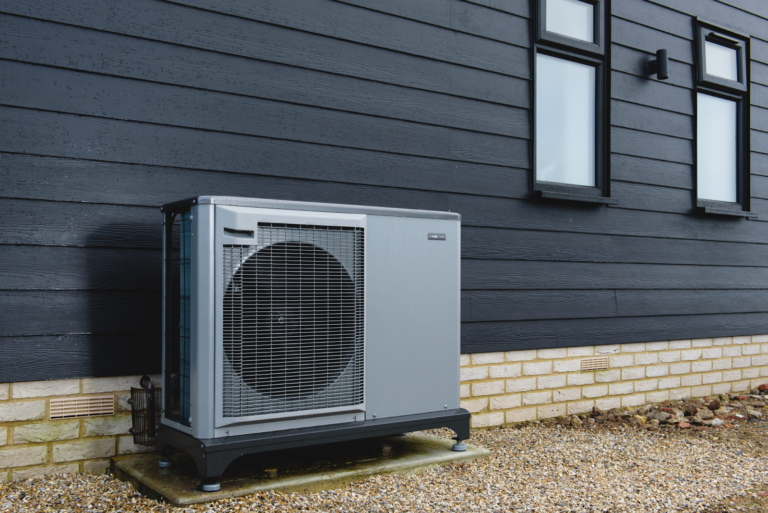Air source heat pumps (ASHPs) have emerged as a highly efficient and environmentally friendly solution for both heating and cooling homes throughout the year. As the demand for energy-efficient solutions continues to rise, homeowners are increasingly turning to this versatile technology for its ability to maintain a comfortable indoor climate without the hefty energy bills. In this article, we explore why air source heat pumps are a smart choice for year-round home heating and cooling.
What Are Air Source Heat Pumps?
Air Source Heat Pumps are devices that transfer heat between your home and the outside air. These systems work by extracting heat from the outside air during the colder months to warm your home, and in warmer months, they reverse the process to cool your home by expelling heat outside. Essentially, an air source heat pump is an all-in-one solution for both heating and cooling, making it an efficient year-round climate control option.
Energy Efficiency and Cost Savings
One of the main advantages of air source heat pumps is their exceptional energy efficiency. Unlike traditional heating systems, such as furnaces or baseboard heaters, air source heat pumps do not generate heat. Instead, they transfer existing heat from the outdoor air to inside your home. As a result, air source heat pumps typically use less energy to produce the same amount of heating or cooling as other systems.
For every unit of energy the heat pump consumes, it can deliver multiple units of heating or cooling. This makes ASHPs up to three times more efficient than conventional electric resistance heating. Over time, the lower energy consumption translates into significant cost savings for homeowners, making air source heat pumps a cost-effective long-term investment.
Environmental Benefits
Air source heat pumps are also a more sustainable option compared to traditional heating and cooling methods. These systems use electricity to operate, and since they transfer heat instead of generating it, they consume far less energy, reducing greenhouse gas emissions. Additionally, air source heat pumps are often compatible with renewable energy sources, such as solar or wind power, making them an even more eco-friendly choice for environmentally conscious homeowners.
By using natural heat from the air, an ASHP minimizes reliance on fossil fuels, which can significantly reduce a home’s carbon footprint. This contributes to reducing overall environmental impact and promotes a more sustainable, energy-efficient home.
Versatility for Year-Round Comfort
One of the key selling points of air source heat pumps is their ability to provide both heating and cooling, making them ideal for homes in regions that experience both cold winters and hot summers. The dual-functionality of ASHPs ensures that you have year-round comfort at the push of a button.
During winter, the heat pump extracts warmth from the air outside, even when temperatures drop to freezing levels, and delivers it into your home. In the summer, the system reverses the process, acting as an air conditioner by removing heat from inside the home and expelling it outdoors.
This flexibility eliminates the need for separate heating and cooling systems, simplifying home climate management while reducing overall maintenance and installation costs.
Improved Indoor Air Quality
In addition to their energy-efficient operation, air source heat pumps can improve indoor air quality. Since ASHPs use a filtration system to clean the air as it circulates through the unit, they help reduce airborne allergens and dust particles in the home. This is particularly beneficial for individuals with respiratory issues, allergies, or asthma, as it creates a healthier living environment.
Furthermore, the continuous air circulation provided by an ASHP can help maintain a consistent temperature throughout the home, avoiding hot or cold spots and ensuring a more comfortable living space.
Long-Term Durability and Low Maintenance
Air source heat pumps are known for their durability and longevity. With proper maintenance, these systems can last for 15 to 20 years, making them a reliable investment. Regular maintenance, such as cleaning filters, checking refrigerant levels, and ensuring proper airflow, helps extend the lifespan of the unit and ensures optimal performance throughout its life.
Additionally, since air source heat pumps do not rely on combustion like traditional gas heating systems, they pose fewer safety risks, such as carbon monoxide poisoning, further enhancing their reliability.
Conclusion
Air source heat pumps offer numerous benefits that make them a smart choice for year-round home heating and cooling. With their energy efficiency, environmental benefits, versatility, and low maintenance requirements, these systems are not only cost-effective but also provide homeowners with year-round comfort and peace of mind. By investing in an air source heat pump, homeowners can enjoy consistent indoor temperatures while reducing their energy bills and environmental impact.







